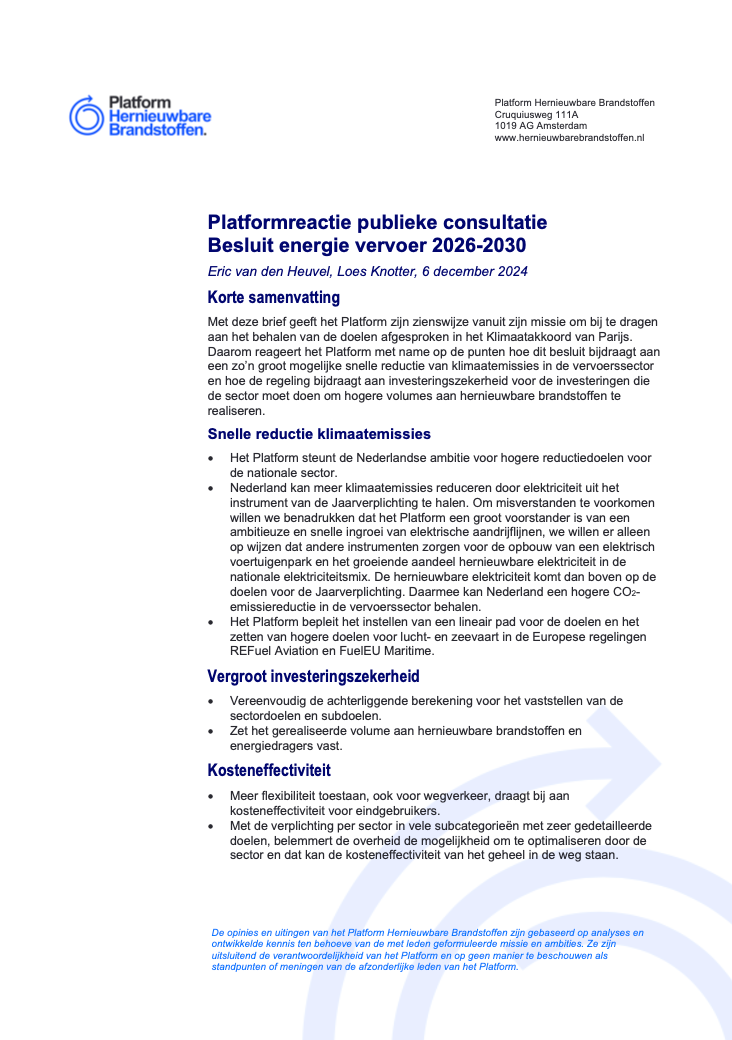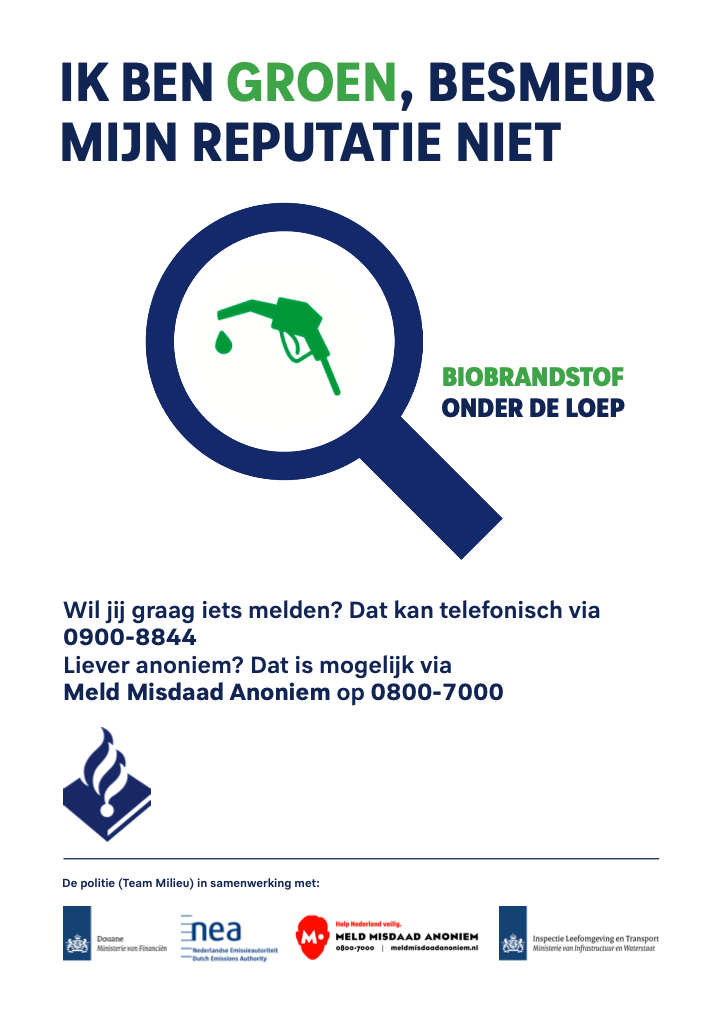Retrospective on the seminar on the long term perspective of renewable gas production in the Netherlands


On October 3rd, Platform Hernieuwbare Brandstoffen hosted a seminar together with Platform Groen Gas on the long term perspective on renewable gas production in the Netherlands. The seminar took place at the Oba in Amsterdam and gathered 45 participants with interest in the topic. The goal of the event was to discuss and gather inputs for innovation and regulations to realize a long term perspective for renewable gas production in the Netherlands.
For a detailed summary of the presentations as well as the innovation and regulation inputs gathered during the seminar see the document on the right hand side.
Programme for the day:
- Introduction: Long term perspective on renewable gas production in the Netherlands, Emma Beroske, Jouk Hongehuis and Loes Knotter (Platform Hernieuwbare Brandtoffen- Full presentation
- How to valorise the avoided methane-emissions, Robert Goevaers and Ruud Paap (Platform Groen Gas) - Full presentation
- Lessons learnt and best practices from Sweden on biodigestate applications, Karin Tonderski (Swedish Biogas Solution Centre) - Full presentation
- How a comprehensive biomethane production plan can contribute to solving the Dutch nitrogen crisis, Wim Thomas (Founder ES3, Senior Advisor to the Board at Tach2yone GmbH) - Full presentation
- How to ramp up the gasification of biomass pathway for providing the necessary volumes to meet 2030 targets, Berend Vreugdenhil (task leader IEA Bioenergy, Task 33 about gasification) - Full presentation
- Green Gas Revolution: Synergising Electrolysis and Fermentation for Farm-to-Fuel Efficiency, Joàn Teerling (Professor Renewable Gases and Fuels at Hanze University of Applied Sciences Groningen) - Full presentation
- Import of e-methane from an energy security perspective, Bram Poeth (TES H2) - Full presentation
- Conclusion: identification of actions and innovation themes to include in an integrated innovation and investment plan for the ramp-up and deployment of renewable methane in the Netherlands
Takeaways and inputs for regulation and innovation:
- Renewable gas serves many end-markets by providing energy to the built environment, renewable fuels for the transport sector, CO2 as a building block for the chemistry sector and as a storage solution for renewable electricity.
- Ambition for renewable gas production has been diluted over the years in the Netherlands. However, introducing measures to treat all the manure in the Netherlands by either promoting manure digestion or placing an obligation to treat all manure can ramp up renewable gas production.
- Higher overall targets and sub-targets are required to stimulate the development and deployment of other technology pathways (such as gasification).
- The further development and derisking process for the gasification value chain should be accelerated by focusing on small scale plants first, which limit the financial losses when running into hickups.
- Policy continuity is needed to reduce investment risks and ensure alignment of policy direction between ministries with a long-term integral perspective on dealing with societal challenges such as nitrogen deposition, manure surpluses, and renewable energy production.
- An integral approach to spatial planning is also needed for building biogas digestor or gasification facilities.
- An integral approach to spatial planning is also needed for building biogas digestor or gasification facilities.
- Need long term spatial planning that considers the CO2 and H2 point sources.
- There is a need to facilitate the development of a CO2 commodity market next to investments in renewable electricity and electrolyser capacity
- In order to fully exploit the possibilities for e-fuel production.
- There is a need to facilitate a speeding up of the licensing process
- In order to ramp up the development of new facilities as well as process changes, such as changing from a mono digestion to a multi input digestion.
- Maximum efforts should be put into updating regulatory and legal requirements on RENURE products to foster nutrient recycling and replace fossil fertilisers
- Continuous efforts to increase grid capacity to avoid grid congestion and project delays.
- Annual blending obligations in demand sectors are a key instrument to stimulate the deployment of renewable methane. The market will need target setting beyond 2030.

 Download hereVisit Website
Download hereVisit WebsiteRecente artikelen
Platformreactie publieke consultatie Besluit energie vervoer 2026-2030

T&E does support sustainable biofuels
NEa: ik ben groen, besmeur mijn reputatie niet | 2025

